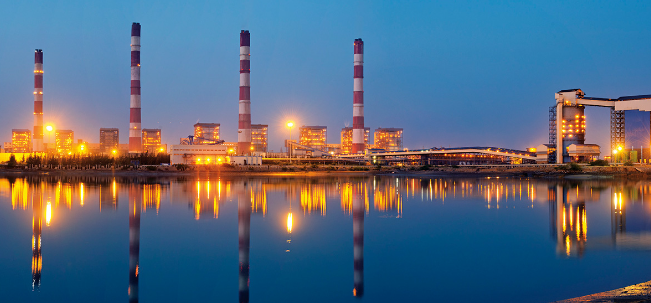
(Photo : www.adanipower.com)
- Adani Power has reduced its power supply to Bangladesh amid a dispute over $800 million in outstanding payments.
- The supply was further reduced to about 520 MW, influenced by both the demand from Bangladesh and the outstanding payment dues.
- Despite the ongoing payment dispute, Bangladesh continues to receive a reduced supply, even after expediting the payment of dues.
- The situation underscores the geopolitical complexities of energy trade in South Asia and the need for a diversified energy mix.
In a recent development that has sent shockwaves through the South Asian energy sector, Adani Power, a major Indian electricity producer, has significantly reduced its power supply to neighboring Bangladesh. The move comes as the company seeks to recover over $800 million in outstanding payments, according to data from Bangladesh's grid operator and sources familiar with the situation. Adani Power, which exports electricity to Dhaka from its dedicated 1,600 megawatt (MW) Godda plant in eastern India's Jharkhand state, had initially reduced its supply this month to 700 MW-750 MW from around 1,400-1,500 MW in early August.
Adani Power's Gradual Reduction in Supply
However, the situation escalated late on Thursday when the supply was further reduced to about 520 MW, as per Power Grid Bangladesh data and an official with the Bangladesh Power Development Board (BPDB). The reduction in power supply has been a gradual process, influenced by both the demand from Bangladesh and the outstanding payment dues. This information was shared by a source at Adani Power, who spoke on condition of anonymity as they are not authorized to speak to the media.
The power and energy adviser in Bangladesh's caretaker government, Muhammad Fauzul Kabir Khan, addressed the situation in a statement to Reuters. We are gradually paying the dues and will take alternative measures if anyone stops the supply. We will not let any power producer hold us hostage, he said. Despite the ongoing payment dispute, Bangladesh continues to receive a reduced supply. This is even after the country expedited the payment of dues and a Nov. 7 payment deadline by Adani had been lifted, according to a BPDB official.
Bangladesh's Economic Struggles and Adani's Silence
The South Asian nation, which has been grappling with economic challenges, opened a letter of credit for $170 million for Adani and has been accelerating payments. The economic struggles of Bangladesh have been exacerbated by costly fuel and goods imports since Russia invaded Ukraine in 2022. The political turmoil that led to the ouster of Prime Minister Sheikh Hasina in August has further compounded the country's troubles. Adani Power, however, did not respond to queries from Reuters on the reduction in power supply and details of payments made by Dhaka.
Historical Precedents and Geopolitical Complexities
This is not the first time a country has faced such a predicament. Historical precedents show that energy disputes between nations can have far-reaching implications. For instance, the Russia-Ukraine gas disputes in the late 2000s disrupted gas supplies to several European countries, highlighting the geopolitical risks associated with energy dependence. In the case of Bangladesh, the current situation underscores the country's vulnerability to external shocks and the need for a diversified energy mix. The country's reliance on costly fuel and goods imports has strained its finances, leading to difficulties in meeting its payment obligations.
The situation also underscores the geopolitical complexities of energy trade in South Asia. As countries in the region grapple with energy security issues, disputes such as the one between Adani Power and Bangladesh could potentially disrupt regional energy cooperation efforts.
* This is a contributed article and this content does not necessarily represent the views of btin.co.in









